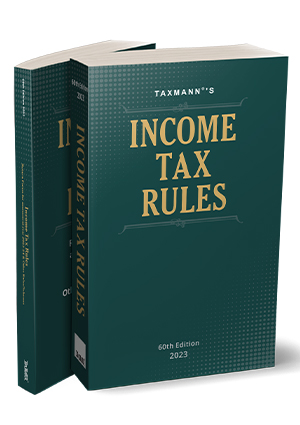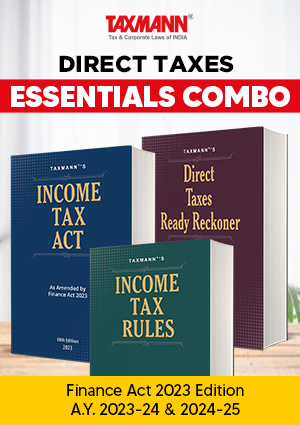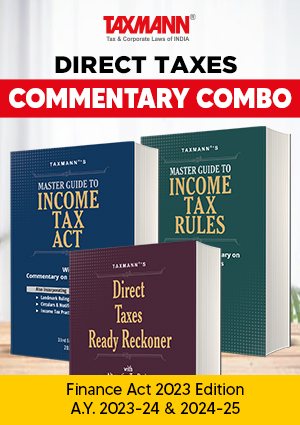Top 10 Expectations from the Upcoming Budget
- Blog|Income Tax|
- 3 Min Read
- By Taxmann
- |
- Last Updated on 28 January, 2021
Here are the key things the Govt. should consider in its first budget:
1. More relief to individual taxpayers:
Since last 5 financial years, basic exemption limit has remained same. Govt. should consider revising it considering the rate of inflation in last 5 years. It will not only benefit the small taxpayers but also the Department to reduce its compliance cost.
2. Lower GST rates for goods falling in higher bracket:
India has one of the highest tax rates in the world when it comes to the GST. It is recommended that the GST rates of goods/services falling in the bracket of 18%/28% shall be further brought down.
3. Increase in threshold limit of section 80C:
The existing threshold limit of Rs. 1.5 lakhs for deduction under Section 80C leaves very little scope for the taxpayers to make more investments. There is need of an increase in limit of section 80C deductions.
4. Higher deduction for interest on housing loan:
The Govt. should promote housing sector by giving higher deduction for interest on housing loan.
5. Bringing non-GST products within GST ambit:
As we are close to celebrate 2 years of GST implementation in India, it is the right time for the Govt. to include the non-GST products such as petroleum crude, motor spirit (petrol), natural gas, and aviation turbine fuel, etc., within the ambit of GST.
6. Outdated limits for salaried employees need revision:
There are several allowances which are exempt from tax up to certain threshold limits. These threshold limits are too meagre in today’s scenario as they have not been revised with the time. It is the urgent need of the hour that Govt. should increase the threshold limits of various allowances.
7. Higher deduction of saving interest:
It is advised that deduction of Rs. 10,000 towards saving bank interest should be increased in this year full budget as this limit was set long back by the Finance Act, 2012.
8. Allow more time to buy new house for Sec. 54 or 54F exemptions:
Section 54 and 54F allows very little time to the taxpayers to invest in a new house. It allows up to 2 years to buy a new property and 3 years to construct it. There numerous of rulings wherein the taxpayers failed to get exemption as builders did not deliver the house within committed time. It is suggested that the time limit to invest in new house should be increased to at least 5 years.
9. Pollution and Environment:
Pollution is serious threat on human lives and our environment and this issue should be addressed with serious approach. The ensuing full Budget should introduce tax sops to the entities working to curb the pollution in metro cities.
10. Reduce GST compliance burden:
GST was introduced with the objective that it would be a Good and Simple Tax. However, we have witnessed that taxpayers are facing the increased compliance burden. They have to file, firstly a monthly return, then a quarterly and at last a final annual return. It is recommended that the Govt. should try to reduce the compliance burden specifically for small taxpayers.
Disclaimer: The content/information published on the website is only for general information of the user and shall not be construed as legal advice. While the Taxmann has exercised reasonable efforts to ensure the veracity of information/content published, Taxmann shall be under no liability in any manner whatsoever for incorrect information, if any.

Taxmann Publications has a dedicated in-house Research & Editorial Team. This team consists of a team of Chartered Accountants, Company Secretaries, and Lawyers. This team works under the guidance and supervision of editor-in-chief Mr Rakesh Bhargava.
The Research and Editorial Team is responsible for developing reliable and accurate content for the readers. The team follows the six-sigma approach to achieve the benchmark of zero error in its publications and research platforms. The team ensures that the following publication guidelines are thoroughly followed while developing the content:
- The statutory material is obtained only from the authorized and reliable sources
- All the latest developments in the judicial and legislative fields are covered
- Prepare the analytical write-ups on current, controversial, and important issues to help the readers to understand the concept and its implications
- Every content published by Taxmann is complete, accurate and lucid
- All evidence-based statements are supported with proper reference to Section, Circular No., Notification No. or citations
- The golden rules of grammar, style and consistency are thoroughly followed
- Font and size that’s easy to read and remain consistent across all imprint and digital publications are applied





Comments are closed.